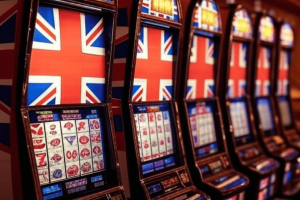Slot machine companies ‘target poorest areas in the UK,’ as profits go offshore – report

Slot machine companies are reportedly targeting some of the poorest neighborhoods in the United Kingdom (UK), while the profits are being funneled to billionaire-owned corporations overseas and a Wall Street investment fund that uses an offshore lending structure.
According to The Guardian, the number of slot machine venues has increased by 7% since 2022. Due to industry-friendly zoning and licensing rules, the companies have been able to flood British main streets with new “adult gaming centres,” many of which are open 24 hours a day.
The businesses are mostly concentrated in the country’s most economically disadvantaged areas, the report found. That’s sparked concern among politicians, including Greater Manchester Mayor Andy Burnham, who are calling for local governments to have the authority to block new locations from opening.
UK areas affected by slot machine companiesOut of the 1,452 adult gaming centers (AGC) looked at, about a third were located in the poorest 10% of neighborhoods across Britain. Even more striking, over half were in the bottom 20%.
During a recent wave of new openings, big players like Admiral and Merkur kept focusing on the same struggling communities as they expanded their presence on high streets.
Seaside towns, many of which are economically deprived and already known for their amusement arcades, are some of the biggest hotspots for adult gaming centers, with Great Yarmouth at the top of the list.
But it’s not just the traditional resort towns, as other coastal areas that aren’t vacation destinations also have a high number of these gambling venues.
Take Middlesbrough and Hull, for example. They rank as the fourth and fifth most deprived local authorities in the UK, and together they have 28 AGCs serving a combined population of around 425,000 people.
Compare that to 14 other local council areas that don’t have a single AGC, even though they’re home to 1.7 million people. Almost all of those areas fall within the top half of the wealthiest parts of the country, and eight are in the top 20%.
The British government has been stepping up the pressure lately, introducing stricter rules like requiring safety checks for online gamblers who lose £500 (about $628) or more in a month.
‘Enormous damage to individuals and communities’Gambling – an industry massively out of control, doing enormous damage to individuals and communitieshttps://t.co/dB9Q0jJ5YD
— Natalie Bennett (@natalieben) May 18, 2025
Former UK Green Party leader Natalie Bennett wrote on X: “Gambling – an industry massively out of control, doing enormous damage to individuals and communities.”
Prem Nath Sikka, who is the University of Sheffield’s accounting professor, also lent his voice: “Poor buy dreams, corporations always win; encourage addiction, don’t bear the cost of harms. Empower councils to stop these vampires. Govt pushing deregulation. Tax them.”
Slot machine firms target UK’s poorest areas, channel funds to billionaires.
Poor buy dreams, corporations always win; encourage addiction, don't bear the cost of harms.
Empower councils to stop these vampires. Govt pushing deregulation.
Tax them.https://t.co/kBove9DiiW
— Prem Sikka (@premnsikka) May 19, 2025
Professor Henrietta Bowden-Jones, who advises NHS England on gambling-related harm, put it this way: “Slot machine venues, particularly those open 24/7, deploy addictive products to keep vulnerable people playing for hours on end, against their own interests.”
Well done to @ByRobDavies for a great article today in @guardian
Here is a bit of my long quote as @NHSEngland advisor:
“Slot machine venues, particularly those open 24/7, deploy addictive products to keep vulnerable people playing for hours on end, against their own interests. https://t.co/VYBAzX4aAy
— Henrietta Bowden-Jones (@HBowdenJonesOBE) May 18, 2025
Burnham told the Guardian: “It’s time we were honest about what [AGCs] really are,.” He warned that AGCs were “targeting some of the most vulnerable in our communities.
“We must reclassify these venues in law, give local authorities stronger licensing powers, and hold operators accountable.”
Are gambling companies targeting poor US populations?The strategy may feel all too familiar to Americans who’ve watched similar patterns unfold across struggling US communities. They’ve popped up across city centers and high streets, similar to how payday loan stores or casinos have clustered in lower-income parts of many American cities. This has been seen in places like Atlantic City or parts of the Midwest, where gambling often preys on financial hardship.
A recent study from researchers at UCLA and USC found that young men living in low-income counties are getting hit the hardest by gambling, though the focus is on mobile betting. The data shows that gambling-related harm is more common in poorer areas, which suggests people in those communities are either gambling more or being exposed to it more often. It also raises real concerns that gambling platforms are making things worse financially for people who are already struggling.
Featured image: Grok
The post Slot machine companies ‘target poorest areas in the UK,’ as profits go offshore – report appeared first on ReadWrite.
